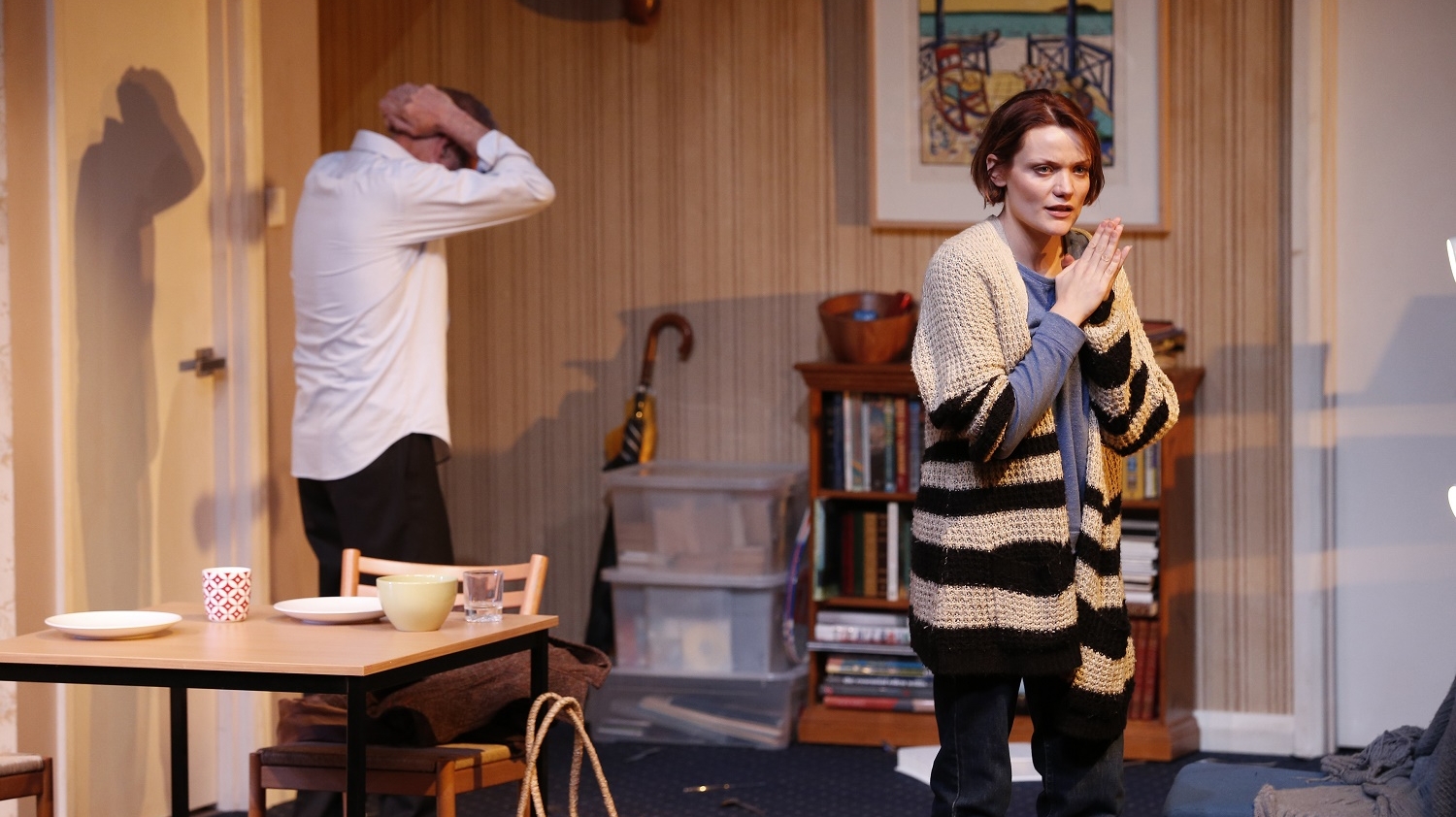As politics in the rest of the world has grown more outrageous, Australian politics has only grown more insipid. The endless campaign of 2016 has devolved into the sloganeering of a group of indistinguishable career politicians, all seeming to say nothing at all to no one in particular. The MTC would seem to have picked the perfect time to bring us Skylight, a political parable about Thatcher-era England told through a doomed romance, to remind us of what an idea-based political culture looks like.
The runaway success of Skylight’s Broadway run—starring Carrie Mulligan and Bill Nye in the lead roles— showed that the specifics of the play’s politics does not limit its contemporary resonance and, if the reviews are to be believed, also showed that between the lines of what seems to be a debate play lies a poignant social drama waiting to be acted into life. Unfortunately, there is little evidence of this potential here.
Director Dean Bryant and his cast fail to elevate the material above two hours of argument between an equally unlikable pair of class caricatures. While technically competent and often dryly humorous, the production is wrought with all of the cringey didacticism of an episode of Q&A while managing to be about as charming. A play that should make you wistful for a more impassioned political culture ends up making you more grateful for the one that we have.
The play revolves around the relationship between Kyra, the wealthy daughter of a solicitor turned teacher of the underprivileged and Tom, a self-made restaurant mogul from a working class background. We learn early that the pair have avoided each other for years on account of an affair turned sour and that their reunion has been sparked by the recent death of Tom’s wife. We also learn that Tom’s wife may not be the only reason their relationship fell apart, as the two become ciphers for opposing perspectives on politics and the role of the individual in society.
What follows is an ideological tennis match between two well-matched opponents. The play gives due credit to both sides of the argument and the audience finds its sympathy shifting in unpredictable ways throughout. Hare’s dialogue crackles with an acerbic wit that lends a personal dimension to the play’s most boldly political moments. Indeed the genius of Skylight is in the subtle ways it uses the fraught relationship of its lead pair to give emotional weight to its ideas.
The major failing of this production is how little of this emotional weight is present on stage. Dean Bryant’s background in musical theatre would seem not to have prepared him for the demands of social realism, as the nuances of the play are obscured by a brashness more befitting a broad comedy of manners.
This is largely brought about by the lead actors, who bring plenty of energy but little depth to their roles. Anna Samson as Kyra keeps her upper lip sufficiently stiff throughout the performance but her impression of a self-contained child of privilege fails to hint at the supposed emotional turmoil that her stoicism obscures. This makes Kyra’s flashes of passion feel more like contrivances than spontaneous explosions of emotion.
Colin Friels likewise fails to impress as Tom, his overblown cockney swagger becoming more grating than endearing over the course of the play. Friels clearly has the chops of a veteran stage actor but he uses them here to maintain an intensity that overwhelms the story and his co-star.
The resulting mismatch makes Kyra seem every bit the condescending martyr she’s accused of being while making Tom come off as a loutish bully. This not only makes them unlikeable individually, it makes their romance entirely unbelievable. The pair seem so at odds that it’s hard to imagine how they found themselves together in the first place, yet alone what might have drawn them back to each other.
The set and sound design effectively evoke the dilapidated urban setting of the play and the lighting lends an intimate depth to the quieter moments but these factors do not greatly improve Skylight’s appeal. While the themes and the writing of Skylight haven’t dated, this production lacks the emotional nuance to bring them to life.
BY TIERNAN MORRISON







